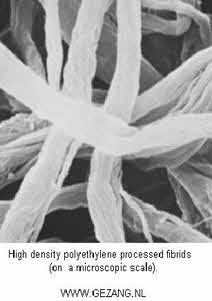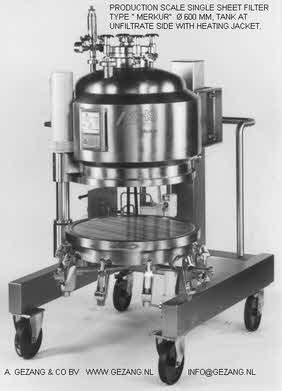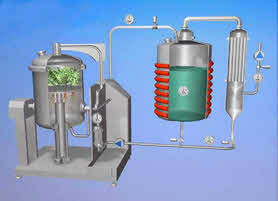
Call us, or send us a fax or e-
A. GEZANG & CO BV -
Tel. +31-

Innovative precoat filteraid made of processed high density polyethylene microscopic fibres with superior chemical resistance over commonly encountered alpha-
Precoat filteraids are applied on the filter hardware septum -
Once the precoating is completed, a bodyfeed dosage of diatomaceous earth (a highly porous grinded fossil silica, also called kieselguhr) or perlite (a grinded volcanic rock) is added to the unfiltered liquid. The liquid is then pumped through the precoat and the supporting septum, that combined traps both impurities and bodyfeed. The solids continuously build up a cake on the surface until the space between adjacent screens is filled or the pressure difference between filter inlet and outlet reaches a maximum. The filter cake can become centimetres thick, and at the end of filtration -
General technical information:
Fibre type: PE fibres
Material: HD-
CAS-
Wetting Agent PVA (CAS-
The fibre product is not toxic.
It may contain up to 2,5 % polyvinylalcohol, which is not soluble in water.
FDA -
BGA -
Specific Weight: 0,96 g / cm3
Crystaline Melting Point: (approx). 132 degrees C.
Decomposition Temperature 330 degrees C.
Acid Resistance: Decomposes only in strong oxidising acids
Alkali Resistance: Good
Solvent Resistance: Slight swelling in hydrocarbon and chlorinated
Hydrocarbon (temperature dependent).
:
S.E & O , Copyright A. Gezang & Co BV 2008
E-



